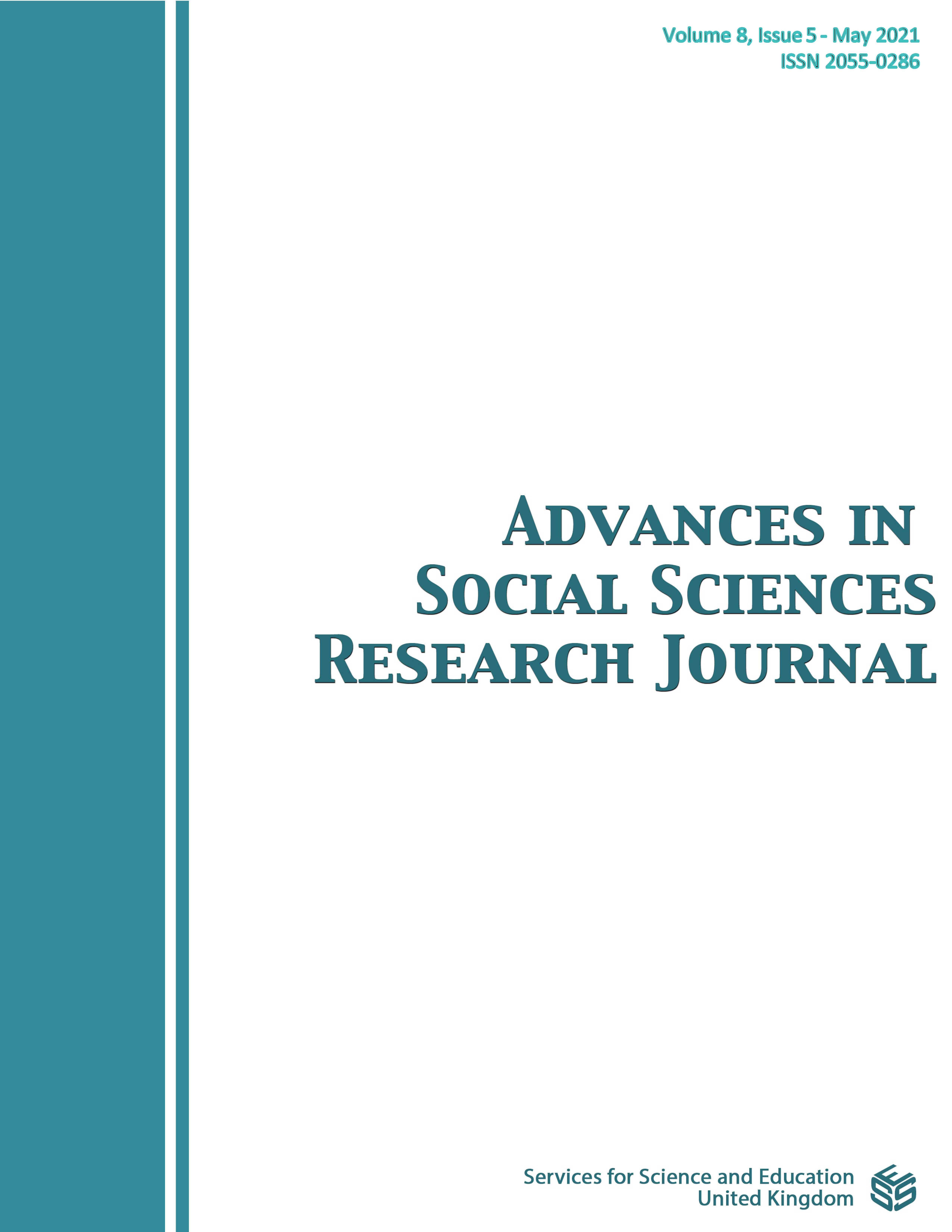The Intensity of Khasi Production: Understanding the Challenges of Modern Agriculture System in Betel Leaf Cultivation
DOI:
https://doi.org/10.14738/assrj.85.10255Keywords:
Modern agriculture, Socio-economic factors, Khasi betel leaf cultivation, SustainabilityAbstract
The intensive agriculture system is prominent in the mainstream production technique of Bangladesh. The paper illustrates the contests of the traditional production system of Khasi about mainstream social and economic expectations of resource use. The specific Khasi adaptation process and the patterned dependency on available environmental resources can be observed in the traditional Khasi production practices. Meanwhile, the logic on the need for intensive production has been rising in the changing socio-economic resource maximization process towards sustainability. The impact of the mainstream trends of agriculture practices on a small-scale economy has been analyzed here with the changes in labor mobility, mechanism of labor control, production cost, and hierarchy issues of the traditional production system. The research findings reflect that modernity initiatives have changed the social and natural support system in production, and changes occur in the system through the market-induced priority of development. The production process is trending towards intensive cultivation. Whether a generalized community, i.e., dependent on multiple natural yielding, diversified forest resources, and social value-oriented cultivation system, can continue the traditional living in a staple food dominated mainstream agro-economy. The study shows that intensive production is growing in the traditional production field of Khasi with modern technologies. As the ongoing production process is found segmented and capital intensive, the research suggests the community-based production behavior to defend the vulnerability of the economic capital-poor Khasis of Bangladesh.
References
Barker, Joshua, Erik Harms, and Johan Lindquist (2013). Introduction. In Figures of Southeast Asian Modernity. J. Barker, E. Harms, and J. Lindquist, eds. Pp. 1-17. Honolulu: University of Hawaii Press.
Bangladesh Bureau of Statistics (B.B.S.). (2016). Yearbook of Agricultural Statistics. 2015. Bangladesh Bureau of Statistics, Ministry of Planning, Government of Bangladesh, Dhaka.
Bangladesh Bureau of Statistics (B.B.S.), 2020a. Gross domestic product of Bangladesh at current prices, 2015–16 to 2018–19. Bangladesh Bureau of Statistics, Ministry of Planning, Government of Bangladesh, Dhaka. Retrieved from http://bbs.portal.gov.bd/sites/default/files/files/bbs.portal.gov.bd/page/057b0f3b_a9e8_4fde_b3a6_6daec3853586/2019-12-12-11-55-26007214ee20f95f34bf0446aa81e646.pdf.
Bangladesh Bureau of Statistics (B.B.S.). (2020b). Population & Housing Census 2011. Bangladesh Bureau of Statistics, Ministry of Planning, Government of Bangladesh, Dhaka. Retrieved from http://www.bbs.gov.bd/site/page/47856ad0-7e1c-4aab-bd78 892733bc06eb/accessed on 1 July 2020
Center for Agri research and Sustainable Environment & Entrepreneurship Development (CASE). (2009). Study of the Impact of Intensive Cropping on the Long Term Degradation of Natural Resources in Some Selected Agroecological Regions of Bangladesh. Dhaka. Bangladesh.
Giddens, Anthony (1991). The Consequences of Modernity. Stanford: Stanford University Press.
Gain, Philip and Aneeka Malik (eds.) (2007). The Khasis of Bangladesh: A socio-economic survey of the Khasi people. Society for Environment and Human Development (SHED).
Geertz, C. (1963). Agricultural involution: The process of ecological change in Indonesia. Berkeley and Los Angeles: University of California Press.
Gurdon, R.P.T. (1914). The Khasis. New York: Macmillan & Company Ltd.
Hawley, A. H. (1950) Human ecology: A theory of community structure. New York:
Ronald Press
Holmes, W.H. (1914). Areas of American culture characterization tentatively outlined as an
aid in the study of antiquities. American Anthropologists 16, 423-6.
Majumder, N. M., Zakaria A. F. M., Rahman M. M. and Haider M. M. (2018). Modernity and Ethnic Dynamics: A Study on Khasi Community of North-East Bangladesh. Man and Culture. Volume 4. Number 1. Pp. 31-42. A Publication of the Institute of Social Research & Applied Anthropology.
Misbahuzzaman, K. 2007. "Problems and prospects of the hilly watersheds in Bangladesh, Priorities for their conservation." Paper presented at the international conference proceedings on sustainable sloping lands and watershed management: linking research to strengthen upland policies and practices. Lao P.D.R., Vientiane: National Agriculture and Forestry Research Institute. Pp. 409-415.
Rabinow, Paul (1986). Representations Are Social Facts: Modernity and Post-Modernity in Anthropology. In Writing Culture: The Poetics and Politics of Ethnography. James Clifford and Geoge E. Marcus, eds. Pp. 234–261. Berkeley and Los Angeles: University of California Press.
Rabinow, Paul (2008). Marking Time: On the Anthropology of the Contemporary. Princeton, NJ: Princeton Press.
Thrupp, I. A. 1989. "Legitimizing local knowledge: From displacement to empowerment for Third World people." Agriculture and Human Values 6(3): 13-24.
Warner, K. 1991. "Shifting cultivators: local technical knowledge and natural resource management in humid tropics." Community Forestry Note No' 8' Rome: F.A.O.
World Bank. (1995). Environmental and Natural Resource Degradation in Intensive Agriculture in Bangladesh. ENVIRONMENTAL ECONOMICS SERIES: Stefano Pagiola
WB. (2016a). Dynamics of rural growth in Bangladesh. Sustaining poverty reduction. World Bank, Washington D.C. Retrieved from http://documents.worldbank.org.
WB. (2016b). World development indicators, Bangladesh. World Bank, Washington D.C. Retrieved from http://data.worldbank.org.
Bennett. J. W., (1996). Human ecology as human behavior: Essays in environmental and development anthropology (Expanded ed.) New Brunswick, NJ: Transaction Publishers.
Downloads
Published
How to Cite
Issue
Section
License
Copyright (c) 2021 Farhana Jhuma Choudhury, Md. Ashraful Haque

This work is licensed under a Creative Commons Attribution 4.0 International License.
Authors wishing to include figures, tables, or text passages that have already been published elsewhere are required to obtain permission from the copyright owner(s) for both the print and online format and to include evidence that such permission has been granted when submitting their papers. Any material received without such evidence will be assumed to originate from the authors.






